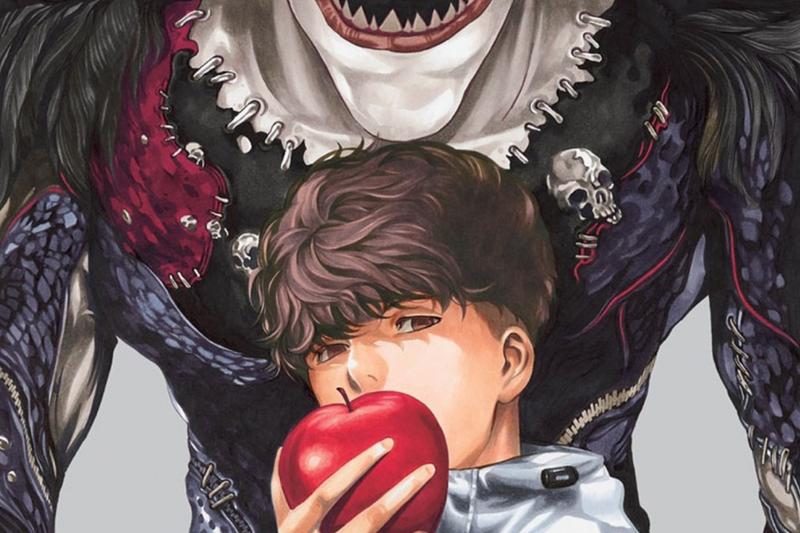
Is the new Death Note one-shot a worthy sequel to the original series?
More Videos
Published
4 years agoon
By
Rachel Roth
The 12-issue manga “Death Note” by Tsugumi Ohba ended over 10 years ago but its legacy is still going strong. The series follows ambitious high school student Light Yagami who decides to rid the world of evil when he finds a notebook with the power to kill people. He strives to become the God of a new world, one that is without crime. He takes on the name Kira and enforces his justice across the world.
The horror manga tells a dark tale about crime, punishment, and humanity. Asking philosophical questions about good and evil that sparked numerous debates during its original run. The moral of “Death Note” is that no one person should have the power to pass the final judgment on another.
Outside of the manga, “Death Note” is also an anime TV series, a short-lived live-action series and the basis for six film adaptations. It’s also a surprisingly good musical. The series ended in 2006 but has returned with a special one-shot.
A new Kira for a new world
10 years after the events of Kira, the Shinigami Ryuk returns to the human world for another round of entertainment. He actually just wants someone to feed him more apples because he’s a junkie. He ends up giving the Death Note to a new boy named Minoru Tanaka, a middle-school student as intelligent as Light, though not nearly as ambitious.
One downside to introducing such a character in a limited format is that it’s impossible to properly connect with him. We only have 88 pages to get to know Minoru, however, the story is very clever in its portrayal of him.
Crime will adapt
Minoru is, in every way, a modern teenager raised by television and the internet. He becomes the new Kira but doesn’t see the Note the same way his predecessor did. He doesn’t want power or justice, he just wants easy money and decides to sell the Death Note!
Even Ryuk is shocked by this move, although to be fair Ryuk is often shocked by everything.
The one-shot acknowledges how the original Kira’s plans wouldn’t work now because of surveillance. The whole world is being watched, and just as crime adapts to every new advancement, Minoru adapts his handling of the Death Note. He uses the internet’s greatest weapon, Twitter, to his advantage and sets up a bidding war between countries. Whoever bids the highest number gets the most dangerous weapon in the world.
Donald Trump officially exists in the Death Note universe
There is a dangerous situation being exposed in this one-shot. It’s an 88-page allegory about the greed of already ruling nations.
In the end, it’s the United States that wins the bid, and guess who’s president? Donald Trump! Trump’s name is never outright spoken but it’s clearly meant to be him. A bloated man in a suit with a bad comb-over that throws money around like he’s living in a Monopoly game. Ohba uses this time to bluntly write out his personal opinions about Trump and other world leaders, including the General Secretary of China, Xi Jinping. It’s not pretty.
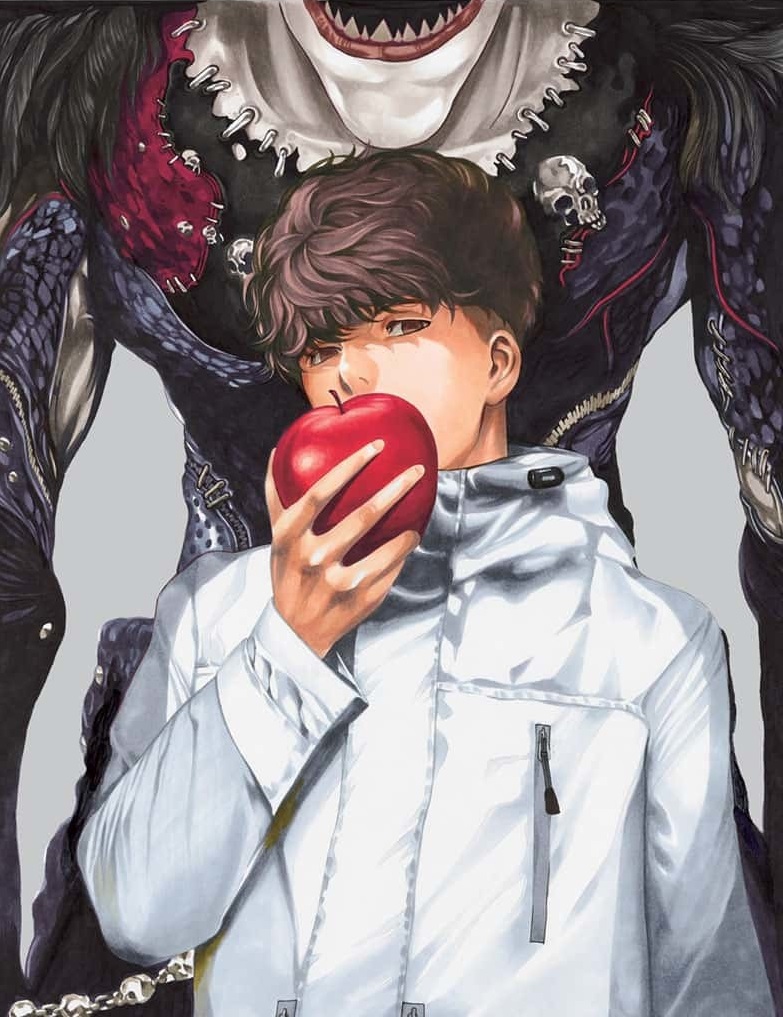
Near continues to be a wasted character
There are several callbacks to the original series including surprise appearances from old characters such as Matsuda, Aizawa, and of course, Near a.k.a. Nate Rivers. Unfortunately, I feel that Near is a weak spot in the issue.
Now living as the new L, he briefly takes on the new Kira case when the bidding war starts, but then drops it just days later when he admits defeat. At first glance, it seems as if Near’s there for pure nostalgia reasons. An attempt to resurrect the L vs. Kira dynamic despite the fact that Near and Minoru have absolutely no interaction.
Although his presence is most likely an attempt to show the difficulty in stopping the selling and purchasing of weapons of mass destruction. The sale happens in secret and the buyer is rarely an individual, but instead a group or nation. If Near is the cop in the scenario and the countries publically bidding are the criminals, how exactly could he stop it?
At one point he makes the claim that he can’t confiscate the notebook because he’s an American citizen. The police can’t arrest their own government for purchasing war tanks. I believe this is the purpose of Near in the one-shot, but it feels almost pointless. He doesn’t get to do anything.
I’ve always thought that Near was one of the more underdeveloped characters in the series. He first appeared alongside Mello in “Death Note: Zero”, as one of L’s two successors. They represented the two halves of L’s personality; Near as his analytical side and Mello as his emotional side.
However, once he’s alone Near seemed to a somewhat deficient character. For me, he just couldn’t live up to L and was almost tedious when compared to Mello. This was a chance to finally show his strengths as a character, but it never happened.
Verdict
Overall, the one-shot brings us back to the world of “Death Note” but doesn’t fall completely back into the past. The story has aged but it’s aged well. It’s enjoyable but also reads like a slap to the face because of how realistic it is. The notebook is fake of course, but it can easily be a stand-in for an actual weapon of war.
You can read it for free here.

Rachel Roth is a writer who lives in South Florida. She has a degree in Writing Studies and a Certificate in Creative Writing, her work has appeared in several literary journals and anthologies. @WinterGreenRoth

You may like
1 Comment
Leave a Reply
Cancel reply
Leave a Reply
This site uses Akismet to reduce spam. Learn how your comment data is processed.
Dear readers, the time has come for some answers. At least, that’s what the teaser for the new installment of Monastery says. As usual, it delivers what it promised and more as we untangle the past and its connection to the present. Without any further ado, let’s talk about it, shall we?
Plot
We start the episode with a blast from the past. Cassandra and Celeste (Nicole’s aunt and Arthur’s lover for those with short-term memory) are in the hospital because of Celeste’s pregnancy complications. Cassandra promises her former best friend that she will ruin her all the while we find out Francis’s real parentage. The picture is finally starting to come together.
As we are back in the present day, our group is more scattered than ever. Thomas is his father Walt’s prisoner while David is still running around looking for Rocky. Fred on the other hand is just looking for any place to crash, homelessness and all. Our dethroned beauty queen Nicole is hiding away from everything – including her shame. Last but not least, little Henry is spending his time taking care of Nana Beth. Guessing that is his redemption for trashing all the evidence of Albert’s murder gathered so far. Although frustrating, his actions are understandable – the poor kid is traumatized and just wants some peace.
George Turner’s murder is still an active investigation. It is obvious that this cover-up wasn’t nearly as successful as Albert’s. I sure as hell hope that Francis gets his comeuppance sooner rather than later. Not particularly because Turner didn’t deserve it but so the rest of the characters would be safe from him. Although as I’ve said before, his clear descent into sociopathic tendencies is kind of fascinating to watch.
We also get an interesting development in what so far has been a tiny background detail, which is the Monastery Werewolf. As the creature comes to visit Rocky, we find out our resident star dog considers it family. Not going to lie, it took me a few reads to understand what this means. Now I’m getting all sorts of ideas as to how the supernatural ties into the rest of the story.
Speaking of the supernatural, it is none other than Madame Witch who frees Thomas from his captivity. Well, her contribution is indirect as she sends his best friend Alfie to help instead. Although I’d say currently the two should set their dynamic status to ‘it’s complicated’. As soon as he’s free, Thomas is immediately back in his detective mode. For arguably the first time he gets some real answers as we find out the whole backstory of Albert/Celeste/Cassandra triangle. I won’t go into details as that trio deserve their own article but let’s just say it gives Cassandra a big ass motive for killing her husband. Not to mention the way she took Francis from Celeste was quite brutal to read.
We reach the lead-on for the grand finale as David and Henry are coming to free Rocky. This naturally comes with a condition – they must hand Francis the key they found during the investigation. Little do they know Nicole is already there being held at gunpoint. Oh, and Fred should also be around somewhere as he was sleeping there the night before. Thomas might be a little late to the party since he and Alfie are held a knifepoint by Rick (seems like a running theme here). Nothing good can come from this.
Overall thoughts
This episode does a perfect job of setting up the big finale. It reveals everything we need to know except the main question – who killed Albert? At this point, while it of course still matters, this story is so much more than that. It’s about all the mess that this family has got themselves into, how with each mistake they kept digging deeper, and how it took a whole new generation for all of that to come up to the surface. I can only hope our investigative gang will make it out alive…

More thoughts from the author:
1. Although a minor character in comparison, Walt strikes me as someone who’s there to represent the themes of Monastery – someone who will do horrible things in the name of family. What was your intention with his characterisation, especially considering he works for justice (aka the police?)
This is why I will always defend my decision to have a large cast, as opposed to most books – when you get even the slightest sense of fleshing out a minor character, it feels so rewarding. Walt, to me, takes the crown of “father of the year”, even if he does it by locking his son up in the bedroom. He is protecting his wife’s secret, protecting his son’s innocence, and doing so by going against his core ideals – i.e., a detective covering up a murder. He’s also based on a favourite uncle of mine, so it makes me happy to give him his moment to shine.
2. Something I thought of while writing this review – the cover up of George Turner’s murder seems to be a kind of juxtaposition as to how neatly Albert’s was since the police keep discovering evidence left and right (and how Francis doesn’t particularly seem to care). Was this intentional on your part?
It all adds up to plot convenience, and I have no shame in admitting that – Albert’s murder was so neatly covered up because I needed it to go unsolved for 14 years, whereas the reader knows who killed George, so there is no need for the cover-up to be well done.
As for Francis’ reaction to the murder, he started out anxious and paranoid after the fact, but he has grown into a state of not caring, which further depicts his descent into darkness – he knows he’s close to his goal (of finding the money and leaving his family), so there is a sense of invincibility taking over. He is stepping into his main villain energy and we are here for it!
3. Alfie has been yet another background character until now and yet he is the one who rescues Thomas. To me he seems like the friend who genuinely cares for Thomas and who gives him that reality check he sometimes needs to get out of his own head. Was that at least partially why you chose to bring him in for the grand finale?
Fun fact: Alfie was originally a series regular. However, halfway through writing the series, I realised I wasn’t using him as much as I’d wanted to, so I bumped him down to recurring. But the original plan always saw him and the other regulars coming together for the big climax, which is why he is in the fold. Alfie is someone who keeps Thomas grounded (if not humbled), since Thomas has the slight tendency to, well, think he’s better than everyone else. What’s coming up for them is one of the most exciting things I’ve ever written about.
4. Lastly, it’s not so much a question but rather a well done for how you crafted the Albert-Celeste-Cassandra dynamic! I was very invested despite knowing the outcome. Weirdly enough, while hating Cassandra for how she handled it, I sort of understood why she thought that Celeste deserved it? Either way, congrats for managing to craft these love stories in the midst of all the murdery goodness.
Thank you so much. As I’ve said before, romance is not my strong suit, but I do love a soapy triangle – and if it ends with gun violence, even better! The reveal of this mystery is probably my favourite sequence in the series so far.
The evils lurking Los Angeles are unveiled in CJ Leede’s 2023 debut novel, Maeve Fly. The novel is a gruesome love letter and ode to Los Angeles and horror icons, centering on the titular character, Maeve Fly. She is, in short, a Disney Princess and serial killer.
Below the Depths of Anaheim
By day, Maeve Fly works as a princess in “the park.” It is is never named, but obviously Disneyland as depicted by Maeve’s vibrant descriptions of the princesses, furry costumed animals, and movie-themed rides. She plays a Scandinavian princess (Elsa) and genuinely loves the job and her coworker, Kate. In her personal life, Maeve tends to her sick, comatose grandmother, former starlet Tallulah, and her grandmother’s cat.
Maeve has an ordinary personal life, including going out with Kate and takes biweekly, afternoon trips to a Tiki bar in which she, a man who may or may not be Johnny Depp, and the bartender are the only patrons. Her interests include the macabre and all things horror and Los Angeles history, her love for the city a central theme throughout the novel. When Maeve meets Kate’s brother, Gideon, Maeve’s sense of self unravels.
Mirroring Fiction
The problem with Maeve’s sense of self, however, is that she has no idea who she really is. She adopts the personalities of literary characters, from Dostoevsky’s Notes from Underground narrator to those in James, Kant and Milton novels.
Maeve is selfish, antagonistic, and very selective of the people she lets in her life. She is an unreliable narrator with an unpredictable temper and ultraviolent tendencies.
Leede’s prose and writing of Maeve invites a new narrative to the genre. Maeve is persistent in her disgust with how often villains need a tragic backstory as excuse for their monstrous behavior, especially when the villains are women. Leede dismantles that trope and provides Maeve with no reason for her treacherous behavior. It is simply who Maeve is.
An Ode to Horror
Maeve Fly is everything I love in a horror story. It is an unpredictable slasher with comedy and heart. Leede has displayed her talent for writing horror. She has created a story that pays its dues to the genre’s long iconic history — one example is the references to Pyscho or American Psycho — but is wholly unique in it’s own form. From captivating dialogue to visceral depictions of horror history and Los Angeles’ sites, like the La Brea Tar Pits, the novel sucks you in until the very last, bone chilling sentence.

Released in August of last year, Mister Magic is written by author Kiersten White. And I’m going to give you the warning that I wish I’d have had when I started reading it.
This book deals largely with the systemic issues prevalent in the Church of Jesus Christ of Latter-Day Saints. While there are no overt discussions or descriptions of child abuse, I would argue that it’s alluded to.
In the interest of full disclosure, White lets us know in the acknowledgments that she was raised Mormon and is not anymore. I was also raised Mormon and am not anymore. And this book wrecked me.
The story
Our story begins with a young woman named Val. She’s been living with her father on an off-the-grid farm for most of her life.
When he dies, a mysterious stranger shows up at his funeral. This man, named Marcus, seems to know her right away. She knows him as well, though she doesn’t seem to remember why.
Eventually, he explains that she was on a children’s TV show called Mister Magic. A show that she has no memory of at all.
And this makes sense because there is little to no evidence online that the show exists. There are no clips, no scripts, no cast lists. It’s as if the show vanished entirely when the last episode aired.
Oh, and during that last episode, a kid probably died.
Desperate to remember her childhood and maybe even reconnect with her mother, Val leaves with her former cast mates for a reunion and podcast taping.
As the Circle of Friends reforms, fans of the show online rejoice. If the cast is getting back together, it must mean Mister Magic is coming back.
And that’s exactly what the mysterious creators have in mind.
What worked
This book shows a world that is all but impossible to describe from the outside. Long before I realized this book was an allegory for Mormonism, I was catching signs. It felt familiar.
Everyone was a little too nice. Everyone seemed to be holding back a little. Everyone seemed eager to do things for other people, almost like they felt like they had to justify their presence.
I also appreciated that we talked about child abuse without talking about child abuse. Through the book, we learn that one member of the cast, Kitty, is missing. Her disappearance heralded the end of the show, but no one wanted to talk about what happened to her.
This, I thought, was a subtle and brilliant way to talk about abuse without having to go into upsetting details. And in not adding these details, White leaves us to invent them ourselves. Which is always worse.
Sometimes it’s the notes you don’t play that make the biggest impression.
To that same end, there is no real gore in this book. No charred bodies, no blood. No gruesome scenes at all. But I feel like that was intentional. I’ll also point out that in reading other reviews for the book, I noticed that others criticized the character for being rather bland and one-dimensional. Both of those things are likely on purpose, and part of proving a point.
In the book, each character remembers Mister Magic pulling them back. He taught them the habit of dulling themselves down. Don’t paint in such a wild manner. Don’t shout so loud. Don’t stray too far.
Don’t draw attention to yourself. Don’t be different.
In the end, Mister Magic managed to do exactly what the very best horror does. It took a real horror that most people do not experience and turned it into a metaphor that everyone can understand. And it doesn’t have to be just former Latter Day Saints members. All survivors of religious abuse will see themselves in this. But we’ll also see all the other lost children, trapped with Mister Magic, and realize we are not alone.

If you’re a fan of my work, please check out my latest story, Nova, on Paper Beats World. New chapters launch every Monday, Wednesday, and Friday.

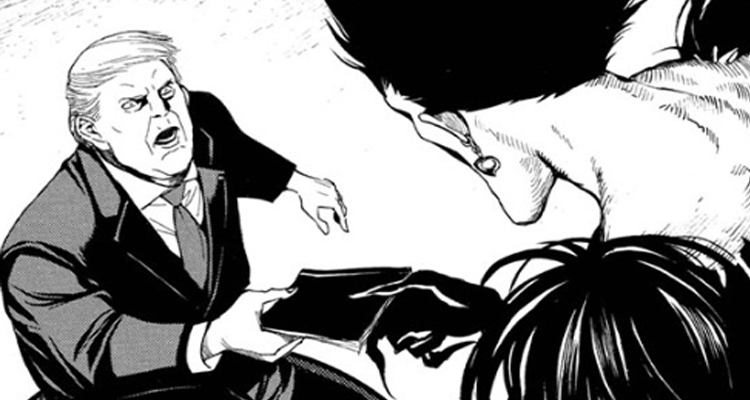
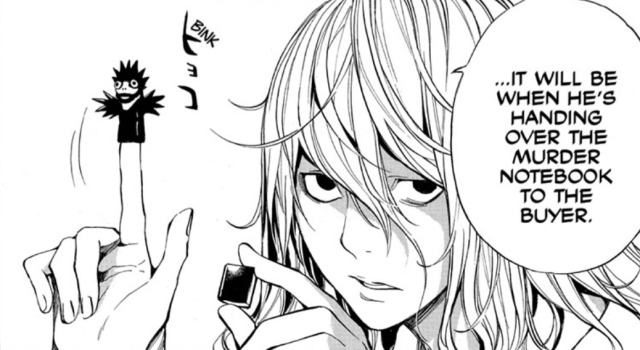
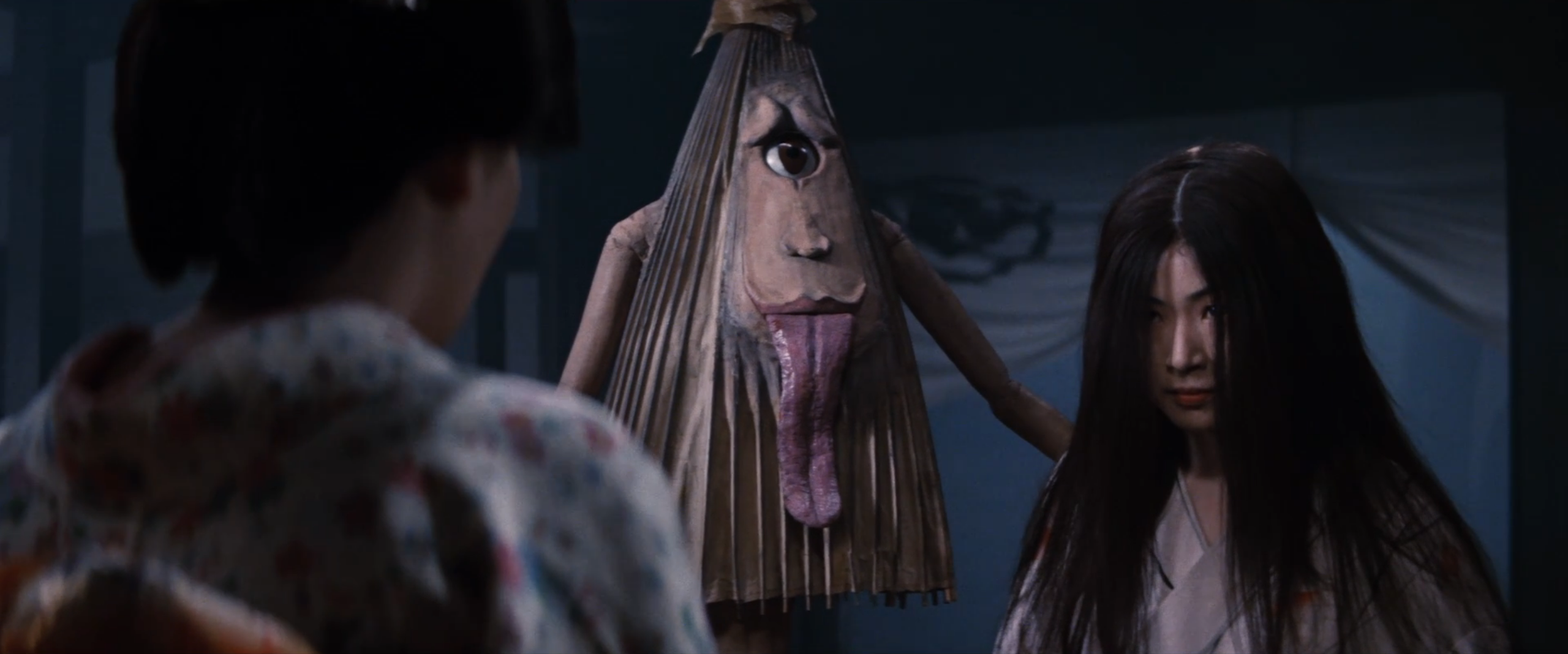
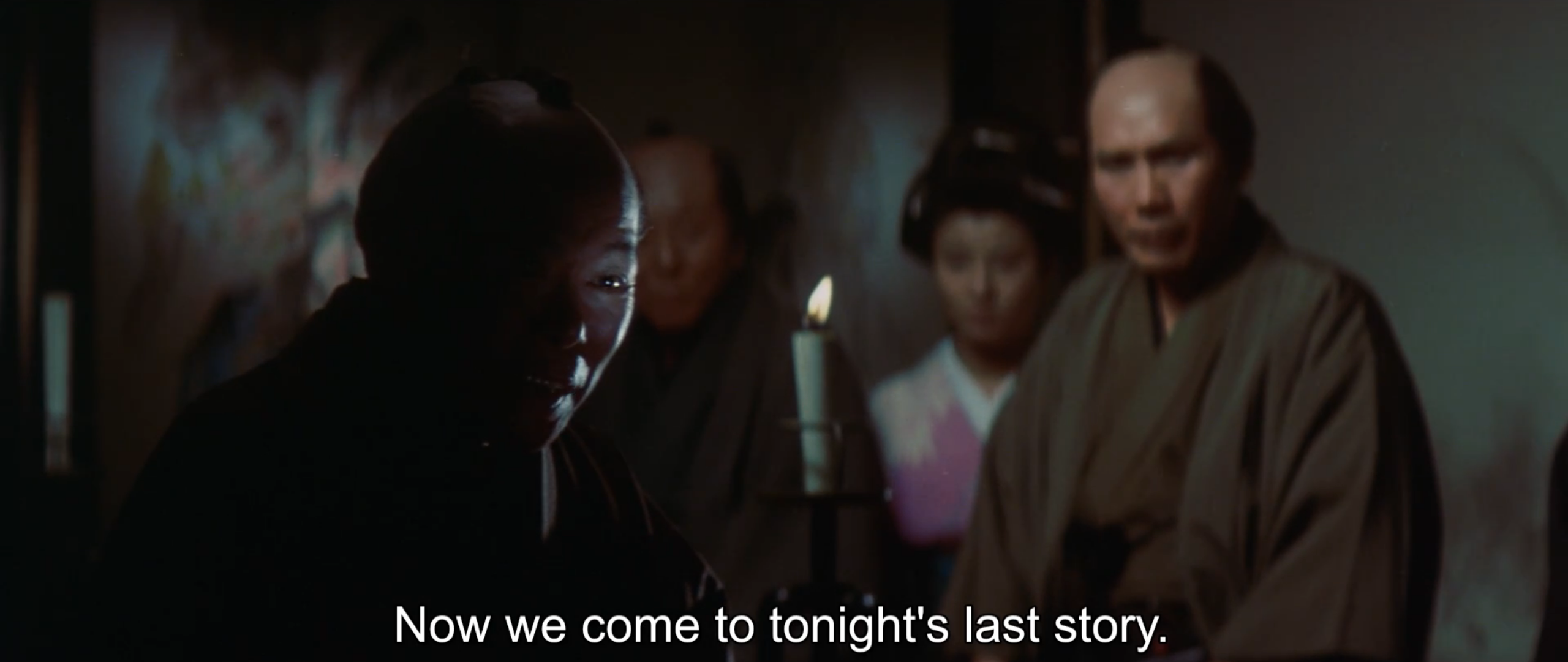

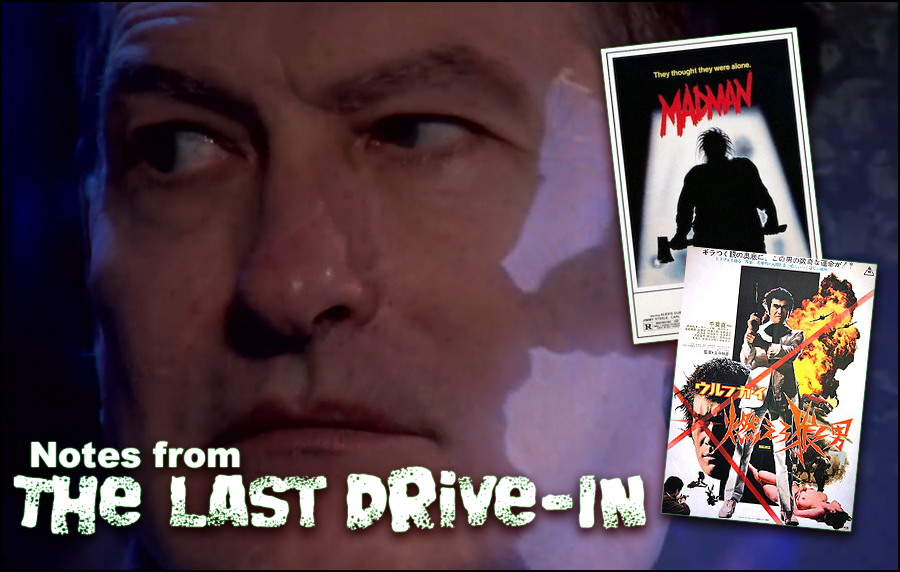



David Davis
February 6, 2020 at 1:13 am
This is a really good review. 😀